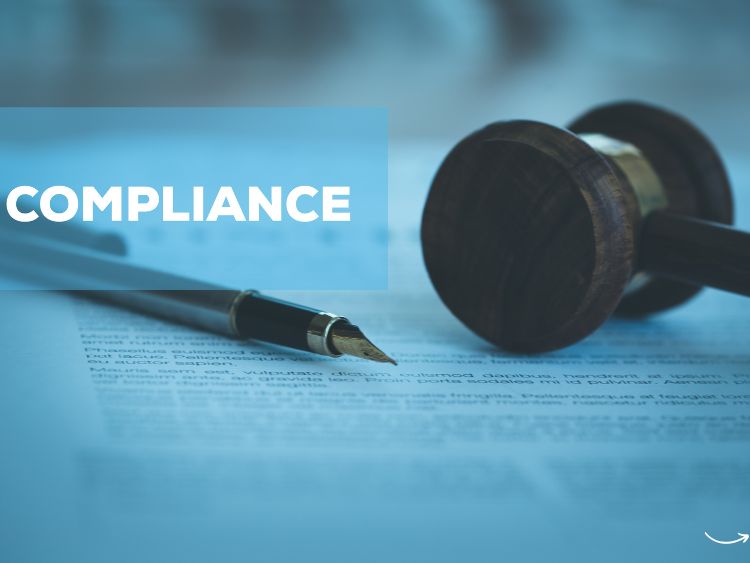So, what is corporate compliance? If you’re scratching your head wondering about this term, you’re not alone. In the complex world of business, corporate compliance stands as a crucial pillar ensuring companies operate within the bounds of laws and regulations. This article will demystify corporate compliance, illustrating its significance and providing insights into how businesses can navigate this essential aspect.
Understanding Corporate Compliance
Corporate compliance refers to the adherence to laws, regulations, guidelines, and specifications relevant to a business. This process ensures that companies act responsibly and ethically, mitigating risks associated with legal penalties, financial forfeiture, and reputational damage.
Why Is Corporate Compliance Important?
The importance of corporate compliance can’t be overstated. Here’s why:
- Legal Protection: Compliance helps avoid legal repercussions.
- Reputation Management: Upholding compliance standards maintains a company’s good name.
- Operational Efficiency: Clear guidelines streamline processes and prevent operational hiccups.
- Risk Mitigation: Identifying and addressing potential risks before they become significant issues.
Key Components of Corporate Compliance
Understanding corporate compliance requires breaking down its main components:
- Policies and Procedures: Establishing clear, accessible guidelines for employees to follow.
- Training Programs: Regular training to keep employees informed about compliance issues.
- Monitoring and Auditing: Regular checks to ensure compliance policies are being followed.
- Reporting Mechanisms: Systems in place for employees to report compliance concerns.
- Enforcement and Discipline: Consequences for non-compliance to reinforce adherence.
Implementing Corporate Compliance
How does a company implement an effective corporate compliance program? It’s not a one-size-fits-all process, but there are some universal steps to consider.
Step 1: Risk Assessment
First things first, conduct a thorough risk assessment. Identify areas where the company might be vulnerable to compliance breaches. This helps in tailoring the compliance program to address specific risks effectively.
Step 2: Develop Policies and Procedures
Once risks are identified, develop clear policies and procedures. These should be comprehensive, covering all areas of potential risk, and accessible to all employees.
Step 3: Training and Education
Education is key. Regular training sessions ensure that all employees understand the compliance requirements and know how to adhere to them.
Step 4: Monitoring and Auditing
Set up regular monitoring and auditing processes. This continuous oversight helps catch any compliance issues early, allowing for timely interventions.
Step 5: Reporting and Communication
Encourage a culture of openness where employees feel comfortable reporting compliance concerns. Establish clear reporting channels and ensure issues are addressed promptly.
Step 6: Enforcement
Finally, enforce the compliance policies consistently. This means taking disciplinary action when necessary to underline the importance of compliance.
The Role of Corporate Compliance Officers
Who oversees all these processes? Enter the Corporate Compliance Officer (CCO). This individual plays a pivotal role in ensuring a company’s adherence to compliance standards.
Responsibilities of a Corporate Compliance Officer
- Policy Development: Crafting and updating compliance policies.
- Training: Organizing and conducting training programs.
- Monitoring: Keeping an eye on compliance activities.
- Investigation: Looking into reports of non-compliance.
- Reporting: Providing updates to senior management and the board.
Skills Required for a Corporate Compliance Officer
- Attention to Detail: Scrutinizing every aspect of compliance requirements.
- Communication: Clearly conveying compliance information.
- Analytical Skills: Assessing risks and identifying compliance breaches.
- Integrity: Upholding ethical standards and ensuring the company does the same.
Challenges in Corporate Compliance
Implementing corporate compliance isn’t without its challenges. Companies often face several hurdles:
- Evolving Regulations: Laws and regulations change frequently, requiring constant updates to compliance programs.
- Global Operations: For multinational companies, complying with varying international laws adds complexity.
- Resource Allocation: Ensuring adequate resources are available for compliance activities can be challenging.
- Employee Engagement: Keeping all employees consistently engaged with compliance efforts.
Corporate Compliance in Different Industries
Different industries have unique compliance requirements. Let’s take a look at a few examples:
Healthcare
In healthcare, compliance is paramount due to the sensitive nature of the industry. This includes adhering to regulations like HIPAA (Health Insurance Portability and Accountability Act) which safeguards patient information.
Finance
The financial sector faces stringent compliance requirements to prevent fraud and ensure transparency. Regulations like the Sarbanes-Oxley Act are pivotal in this industry.
Technology
For tech companies, compliance often revolves around data protection and cybersecurity. Regulations such as GDPR (General Data Protection Regulation) play a crucial role.
Manufacturing
Manufacturing industries must comply with safety regulations and environmental laws. Ensuring worker safety and minimizing environmental impact are key compliance areas.
FAQs About Corporate Compliance
What is corporate compliance?
Corporate compliance involves adhering to laws, regulations, and ethical standards relevant to business operations to avoid legal and financial repercussions.
Why is corporate compliance important?
Compliance ensures legal protection, maintains company reputation, improves operational efficiency, and mitigates risks.
What are the main components of a corporate compliance program?
Key components include policies and procedures, training programs, monitoring and auditing, reporting mechanisms, and enforcement.
How can a company implement an effective compliance program?
Effective implementation involves risk assessment, developing policies, training, monitoring, reporting, and enforcing compliance standards.
What challenges do companies face in corporate compliance?
Challenges include evolving regulations, global operations, resource allocation, and maintaining employee engagement.
Summary
So, what is corporate compliance? It’s the backbone of responsible business operations, ensuring that companies adhere to the myriad of laws and regulations governing their activities. By understanding and implementing robust compliance programs, businesses can protect themselves from legal issues, enhance their reputation, and operate more efficiently. While it comes with its challenges, the benefits of corporate compliance far outweigh the difficulties, making it an indispensable part of any successful business strategy.
In the ever-evolving landscape of corporate regulations, staying ahead with a proactive approach to compliance is crucial. This not only safeguards the company’s interests but also builds a foundation of trust and integrity with clients, stakeholders, and the broader community.

